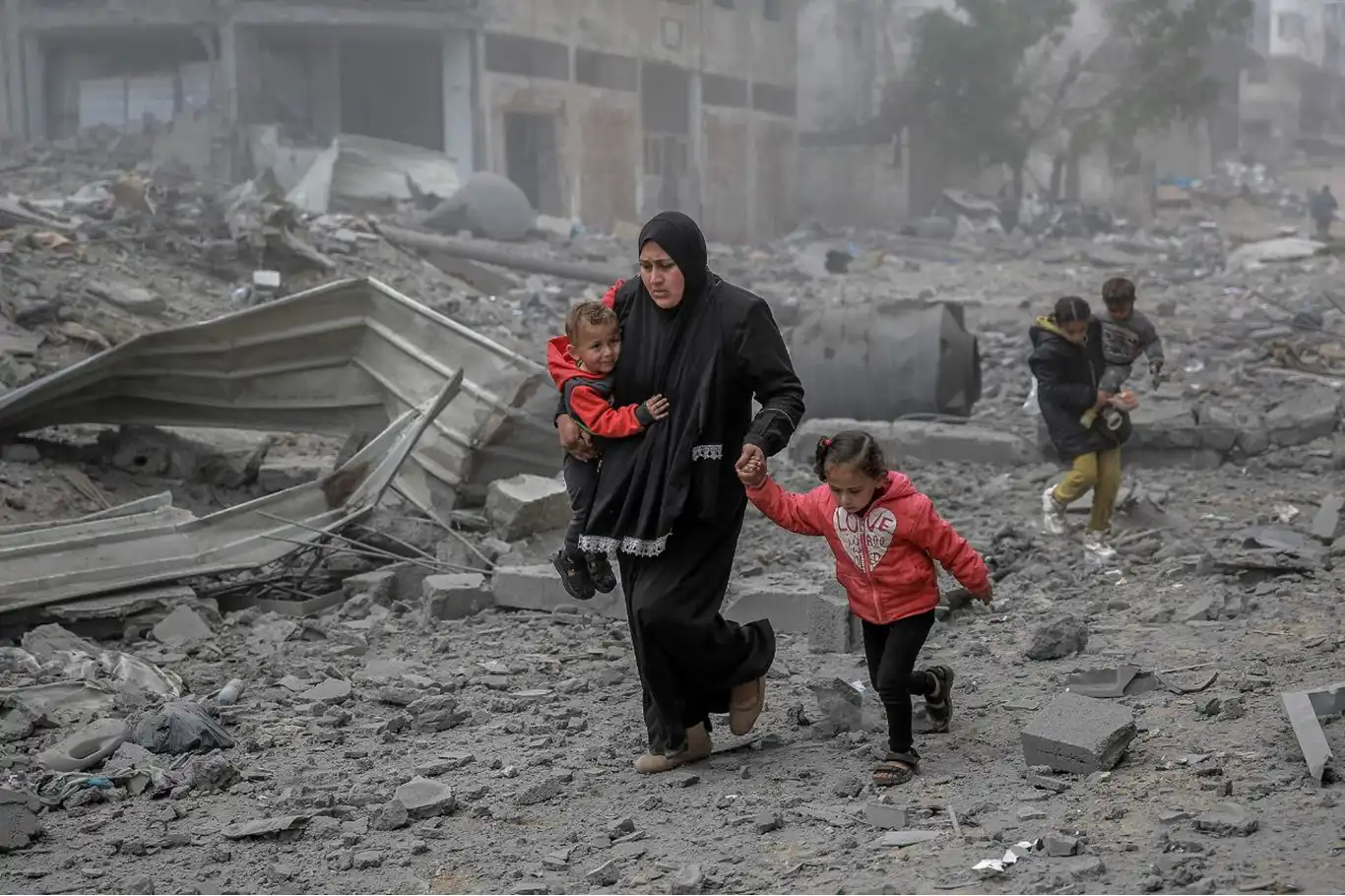UNICEF: Two children killed every day in Gaza despite fragile ceasefire


Ongoing Israeli airstrikes and attacks in the Gaza Strip continue to kill and injure civilians despite an announced ceasefire, UN agencies warned on Friday, describing a rapidly deteriorating humanitarian situation marked by widespread hunger, collapsing healthcare, and mounting child casualties.
UNICEF spokesperson Ricardo Pires reported that at least 67 children have been killed in Gaza since the start of the pause in hostilities on 10 October—an average of two children per day. “Yesterday morning, a baby girl was reportedly killed in Khan Younis by an airstrike, while the day before, seven children were killed in Gaza City and the south,” Pires told journalists. “There’s only one side party to the conflict in Gaza with the firepower to do airstrikes.”
Casualties Mount Despite Ceasefire
According to Gaza’s Ministry of Health data cited by the World Health Organization (WHO), 266 Palestinians have been killed and 634 injured during the ceasefire period, while another 548 bodies have been recovered from the rubble. WHO’s Dr. Rik Peeperkorn stressed that “although there’s a ceasefire, people still get killed,” noting that violence from quadcopter drones and intermittent bombardments continue to harm civilians.
Doctors Without Borders reported treating a nine-year-old girl for facial wounds caused by gunfire from small drones, underscoring the volatility of the so-called pause.
Severe Food Shortages Leave Families Desperate
UN aid agencies warn that food insecurity is worsening sharply across the enclave. The World Food Programme (WFP) has increased its deliveries to about 100 trucks per day—nearly two-thirds of its target—but logistical delays at border crossings threaten the freshness and viability of supplies.
“There are deliveries from the commercial sector, but many food items sit at crossing points for days and risk spoiling,” said Abeer Etefa, WFP Senior Spokesperson for the Middle East and North Africa.
WFP staff inside Gaza described scenes of extreme deprivation. “People have been living on canned foods and dry rations for two years,” said Martin Penner, WFP’s Head of Communications in Palestine. “One woman told us her whole body is crying out for real food.”
Local markets have begun to restock, but soaring prices make purchases impossible for most families. “A chicken costs $25, a kilo of meat costs $20,” Penner said. One mother told WFP she refuses to bring her children near the marketplace “so they won’t see the food they cannot have.” Another woman said she buys a single apple and divides it among her four children.
Health System on the Brink of Collapse
Gaza’s devastated healthcare network remains incapable of treating trauma victims and children requiring specialized care. UNICEF’s Pires described doctors forced to turn away children they know how to save because of the lack of equipment, medicine, and functioning hospitals.
He listed cases involving “severe burns, shrapnel injuries, spinal trauma, brain injuries, children with cancer who have missed months of treatment, premature babies needing intensive care, and children needing surgeries that cannot be done inside Gaza today.”
An estimated 4,000 children urgently require medical evacuation. Among them is two-year-old Omyma, whose heart is failing due to a congenital condition that cannot be treated in Gaza. “She needs surgery urgently to save her life,” Pires said.
Humanitarian Agencies Call for Real Ceasefire and Access
As bombardment continues in parts of Gaza, UN agencies stress that the ceasefire is not holding in practical terms and that humanitarian access must expand dramatically to prevent further loss of life.
“Children in Gaza are still dying every day,” UNICEF warned, reiterating its call for full and sustained humanitarian access, a functioning health system, and a genuine cessation of hostilities that protects civilians—especially the enclave’s most vulnerable children. (ILKHA)
LEGAL WARNING: All rights of the published news, photos and videos are reserved by İlke Haber Ajansı Basın Yayın San. Trade A.Ş. Under no circumstances can all or part of the news, photos and videos be used without a written contract or subscription.
Local authorities in Japan have granted approval for the restart of the Kashiwazaki-Kariwa Nuclear Power Plant, the world’s largest nuclear facility, marking a major step in the country’s return to nuclear energy more than a decade after the 2011 Fukushima disaster.
Nooruddin Azizi, the Acting Minister of Industry and Commerce for the Islamic Emirate of Afghanistan, extended a direct invitation to Indian businesses to invest in his country during a recent meeting with members of the Indian private sector.
A reported draft peace framework from the United States, outlining a negotiated settlement to end the war, has sparked strong and deeply unsettled reactions among senior Ukrainian officials.